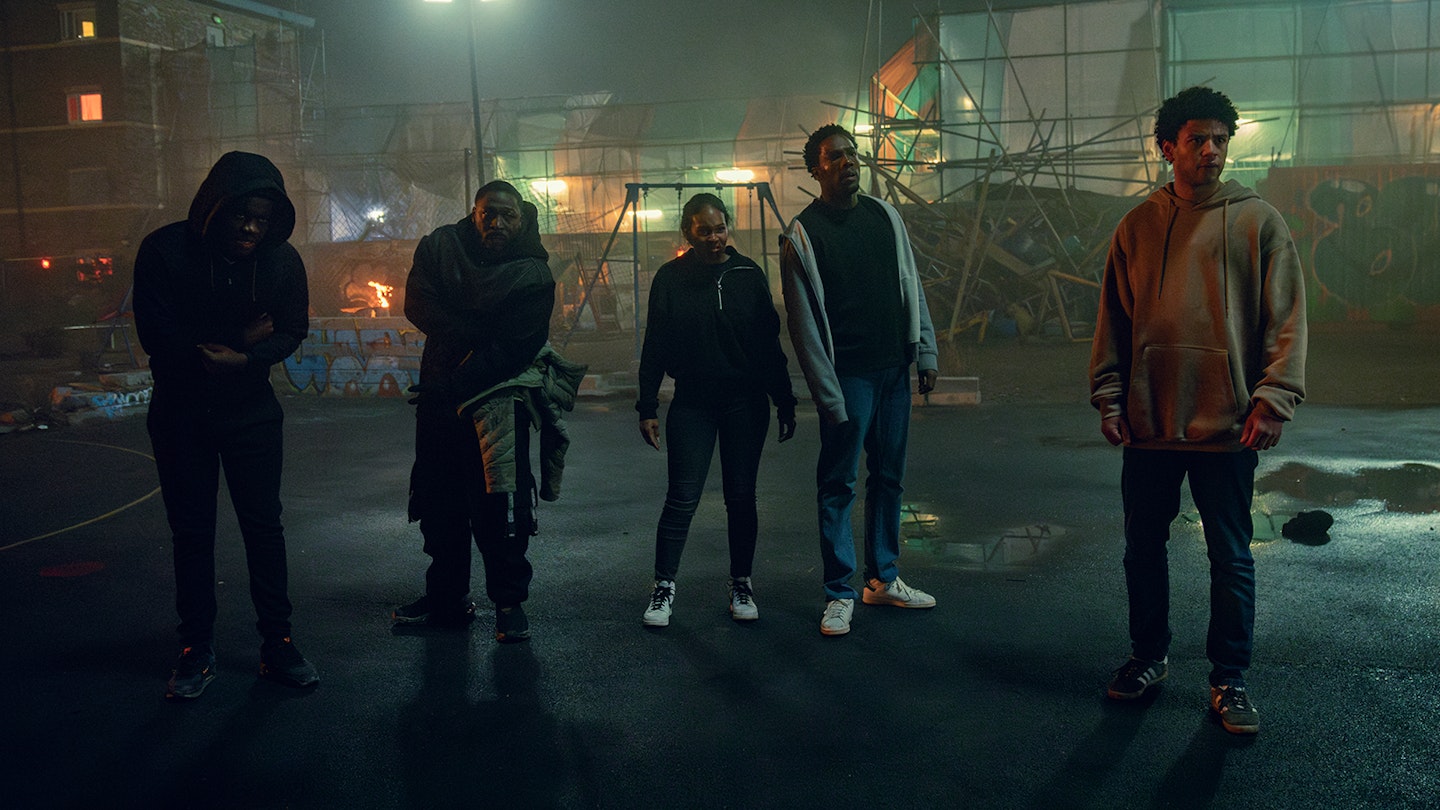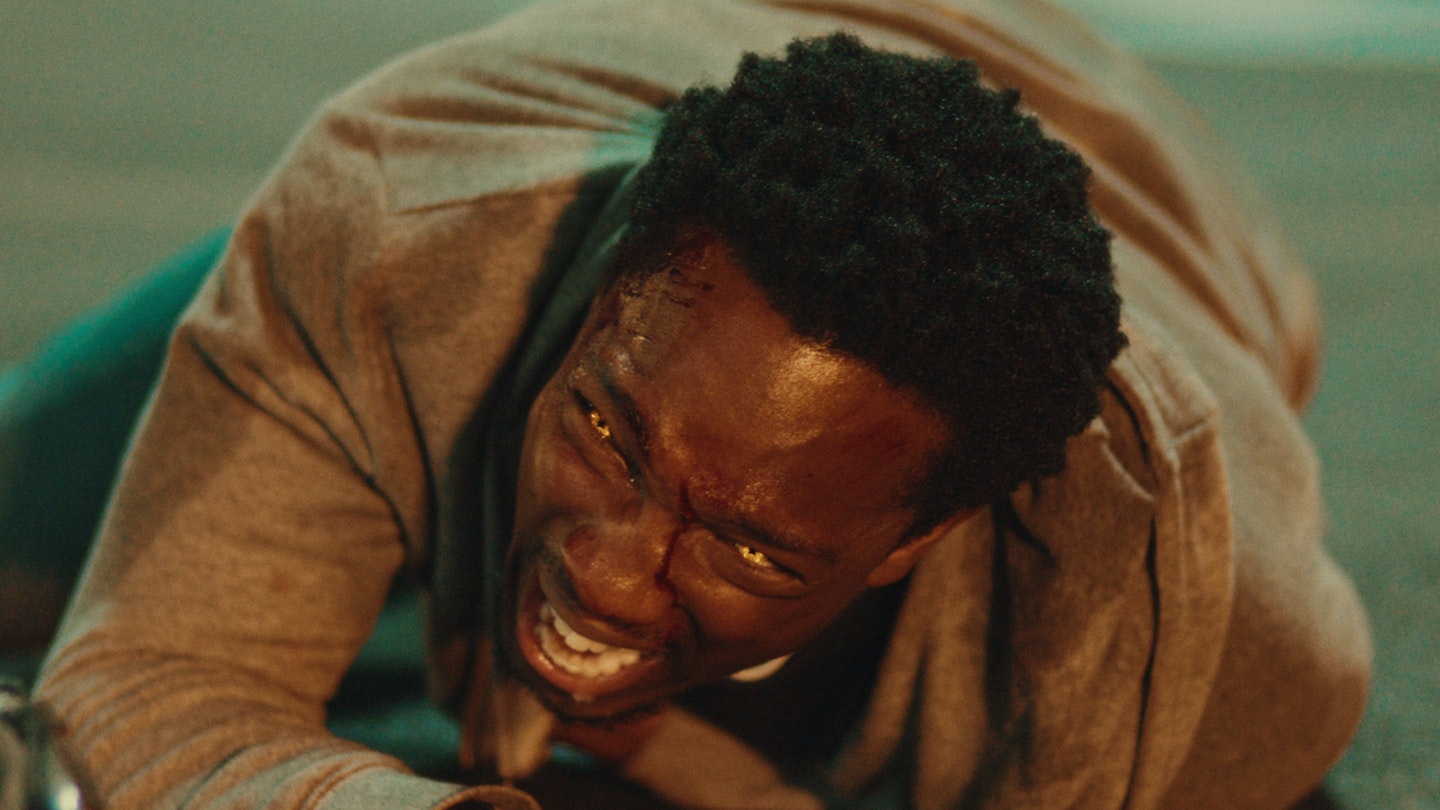Streaming on: Netflix
Episodes viewed: 6 of 6
Supacell scenes occur, as perhaps all scenes should, outside Bargain Booze and Wimpy. You can practically smell the knickerbocker glories. Set and shot in South London, with a predominantly Black cast, the action – the gang violence, the marriage proposals, the drug deals, the super-powered throwdowns – takes place on the estates, on the streets and in the clubs, in Peckham, Lewisham, Brixton, Camberwell. It’s genuinely homegrown, a tribute to creator and writer Rapman’s roots and life experience, and that pays off in practically every shot. It’s almost shocking to see something like this today, a drama that dwells in such a sandbox and doesn’t feel like it’s been made by committee — it’s an unfiltered vision, a defibrillator of a show helping to bring an increasingly spluttering genre back to life.

When he named himself Rapman years ago, it’s unlikely that musician/filmmaker Andrew Onwubolu was prophesying Supacell, but here he is, following up his 2019 breakout postcode-war drama Blue Story with a show about people who can hurl cars, manipulate time and run at the speed of light. They’re not, though, using their powers to fight crime or dominate worlds, but to get through the day – to get the money they need to pay their way; to steal drugs; to battle opposing gang members; or just to be, often against the odds, good partners and parents. Supacell’s own super-strength is exactly this – a cast of characters already in difficult situations, pushed to their limits. With their burgeoning powers suddenly thrust upon them, their predicaments only become more exacerbated, and desperate people find themselves doing misguided things. It’s an addictively stressful show.
An impressively unpredictable show pulsating with vitality and urgency.
These characters – delivery driver Michael (Tosin Cole), frantic dad Andre (Eric Kofi Abrefa), troubled nurse Sabrina (Nadine Mills), brutal gang leader Tazer (Josh Tedeku), cheeky weed dealer Rodney (Calvin Demba) – all develop their powers at the same time, and find themselves variously scared, confused and excited. Michael, who discovers a devastating revelation when he’s flung into the future (It says something about Supacell that a regular guy can tell his girlfriend, “I went to the future”, and pull it off), desperately attempts to find and bind these unwilling participants, who all have their own shit to deal with. He has a much bigger struggle than Nick Fury ever did.

As writer of all the episodes (and director of three), Rapman does formidable plate-spinning throughout, connecting the characters just organically enough to make crossover strands and incidents seem uncontrived. And because these feel like real people living real lives, the show is shot through with a sense of proper danger. Even without the genre conceit, these are people you very quickly invest in. You feel their anger, their fear, their frustration. As Blue Story illustrated, Rapman has a natural ear for language, for the rhythms of conversation, and the interactions here hit home, especially the multiple moments of extreme violence, often involving knives (Supacell goes for the jugular, in every sense). Such scenes are truly shocking, with at least one incident, for better or worse, seemingly designed to test how much we can still empathise with those involved. Suffice it to say, all of this provides more tangible threat than interplanetary squabbling. It’s so… human.
Supacell’s only weakness is the sub-Stranger Things strand framing it all, contextualising why all of this is happening. It’s a strong idea, but is populated by under-developed bad guys saddled with bad-guy dialogue, which feels more jarring than perhaps it might next to the finely-drawn leads. This, though, is overshadowed by an impressively unpredictable show pulsating with vitality and urgency, that frequently gets the blood pumping, and has you hitting ‘Next Episode’ with super-speed. Throughout, Supacell has you realising that superhero fatigue is due to quality, not quantity. “Got tickets for that new Marvel movie you wanted to see”, Andre says to his son. “4D, moving chairs and that.” Such glitz seems a world away from this – the vision of one man, with a precise and personal perspective. And that’s priceless.
